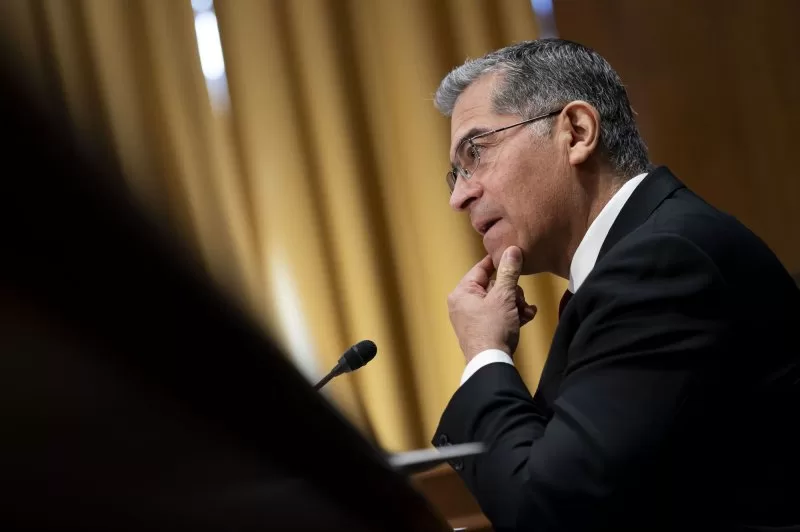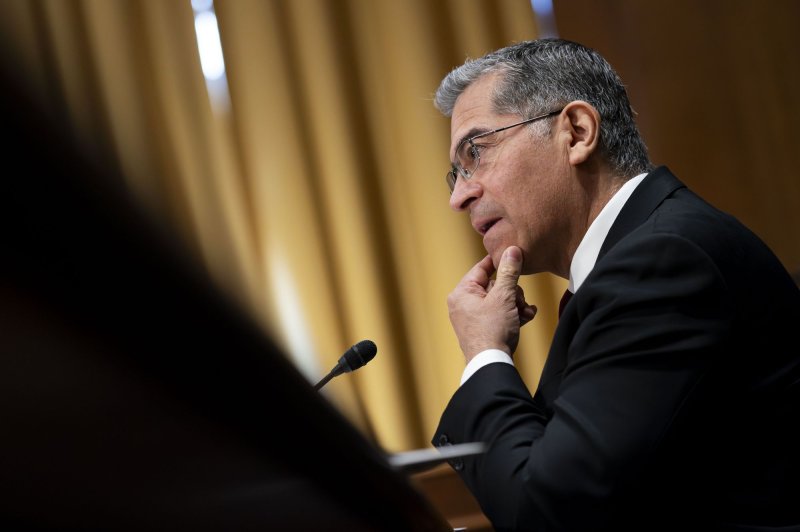Secretary of the Department of Health and Human Services Xavier Becerra speaks during a Senate Finance Committee hearing at the U.S. Capitol on March 14. He announced a new residency program for rural areas on Thursday. File Photo by Bonnie Cash/UPI |
License PhotoJune 13 (UPI) — The Department of Health and Human Services gave $11 million to 15 organizations to create medical residency programs in rural communities across the United States.
HHS Secretary Xavier Becerra and White House domestic policy adviser Neera Tanden announced the new funding while visiting a rural health clinic in Wisconsin Rapids, Wis., on Thursday.
The White House said one program will create the country’s first obstetrics and gynecology rural track program and six others will develop new family medicine residence programs with enhanced obstetrical training in rural communities.
Residency programs are important steps for the education of physicians entering the medical profession after finishing medical school, giving them hands-on experience in their chosen practice.
“Every American should have access to high-quality healthcare no matter where they live,” Becerra said in a statement. That is why the HHS is investing in programs that improve and expand access in geographic areas that have historically been underserved.
“Training more doctors in our country’s rural areas is a proven strategy to recruit and retain doctors to serve rural communities.”
Carole Johnson, the administrator of HHS’s Health Resources and Services Administration, said rural communities have long needed more doctors and healthcare professionals and the residencies are a good way to fill that gap.
“This funding will help build pathways for rural students to become doctors and help rural communities recruit and train more doctors,” Johnson said. “We are particularly pleased to support new programs aimed at training new physicians to care for pregnant women.”

